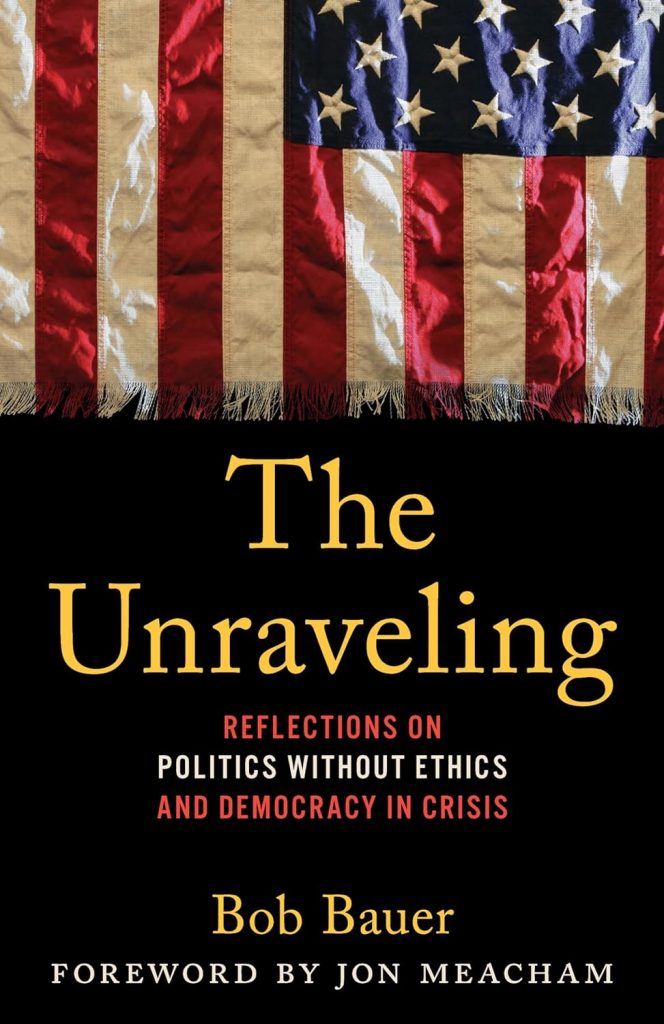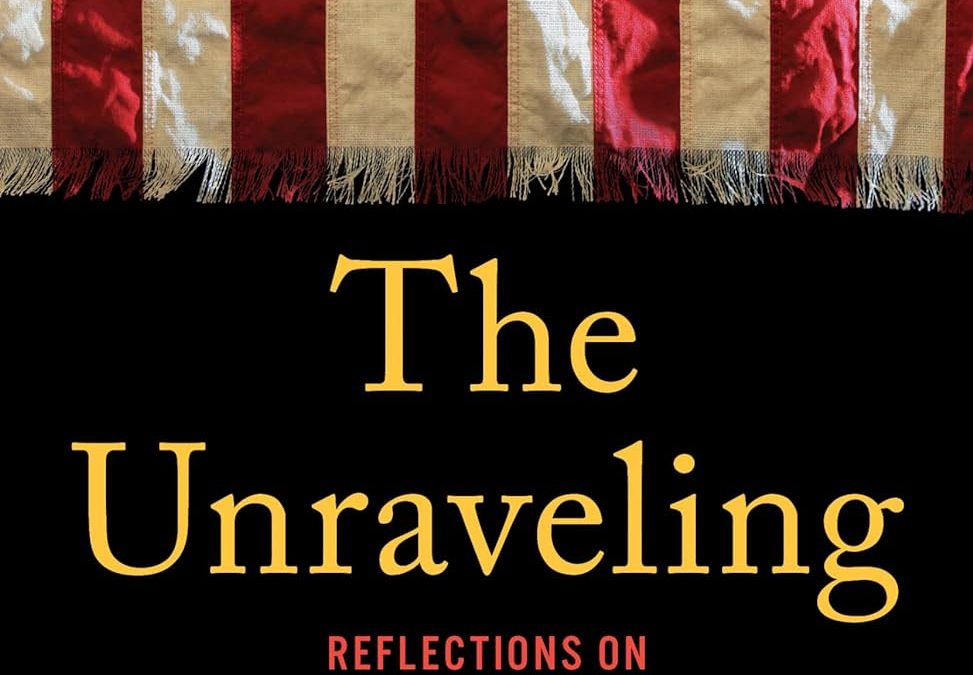
In the nation’s first presidential election beginning in 1788, George Washington won 69 of 69 electoral votes, the only unanimously chosen president in our history. During his eight years in office, two political parties emerged: the Federalists, led by John Adams; and the Anti-Federalists (Democratic-Republicans), led by Thomas Jefferson. These two friends, who had played critical roles in declaring and establishing the nation’s independence, became staunch political rivals.
As the two squared off in 1796, the arrows began to fly. In the end, Adams and the Federalists won a narrow victory. In 1800, Jefferson challenged Adams again in what is largely seen as one of the ugliest presidential elections in American history. At stake was the very meaning of the American Revolution. Was the nation destined to model itself upon Great Britain and establish a federal government that resembled the mother country’s monarchy, as Adams argued? Or, should the power be spread among the several states while broadly honoring the liberties of the people as protected by the Bill of Rights, as Jefferson saw it?
The personal attacks trampled the norms of public discourse. Jefferson was accused of being a coward during the American Revolution. He was called “a mean-spirited, low-lived fellow, the son of a half-breed Indian squaw, sired by a Virginia mulatto father.” He was also referred to as a “howling atheist.”*
Adams was accused of having an “ungovernable temper” and being “unfit” to be president. He had imprisoned journalists of Democratic-Republican newspapers for criticizing the government under the Alien and Sedition Acts. He restricted the free speech rights of immigrants.**
An Electoral College tie sent the vote to the House of Representatives where Jefferson won by the narrowest of margins.
As a lame-duck president, however, Adams used his remaining time in power to rush the appointment of federal judges in what many eventually saw as illegal. These appointments included the nomination and confirmation of John Marshall as Chief Justice of the Supreme Court, filling a vacancy which had only opened up during the same month as the presidential election, December of 1800. Adams then left Washington DC in a fit, refusing to attend Jefferson’s inauguration.
Jefferson harshly criticized Adams’ behavior. Historian Jon Meacham has written that, “The last-minute campaign [to seat judges], Jefferson said, amounted to ‘a parasitical plant engrafted’ on the ‘judicial body.’” While the harsh rhetoric of the campaign stretched the bounds of decency, especially its early nineteenth century variety, Meacham added, “It had… all been done within the bounds of the Constitution, and Jefferson… accepted the new order of things.” It was an ugly fight but once it was concluded, the nation moved on.
In the election of 1800, once the rhetorical dust had settled, the victor and the defeated honored the Electoral College and the decision of the House of Representatives. The law which had allowed the imprisonment of political critics expired and the Constitution itself survived this early test of its resilience. The next five presidential elections resulted in Democratic-Republican victories, answering the larger question behind the very meaning of the American Revolution.
The election of 1800 also set a precedent of sorts. For over 200 years, the battles for the White House would often be ugly affairs. Indeed, even in the nastiest of these campaigns, the institutions that underscore our democracy were respected. That is, until now.
In The Unraveling: Reflections on Politics without Ethics and Democracy in Crisis (2024), political lawyer Bob Bauer suggests that our current political climate not only poses a threat to the institutions that girder our democratic system, but there exists an openly expressed and popularly supported contempt for them.
Bauer “has been a legal adviser to the national Democratic Party and to its candidates on strategies for winning elections and protecting voting rights” for several decades, and “he has represented the party in national conflicts and controversies.” During a long legal career advising elected officials, Bauer also served as “the chief counsel for both of President Obama’s presidential campaigns and was the president’s White House counsel.” He was also a “senior adviser to the Biden presidential campaign on voting rights and election protection.”
While Bauer chronicles a long line of political abuses going back to the Nixon administration, his current concern is that the decades-long deterioration of political ethics has devolved into something much more sinister. Even Nixon, who has long been seen as the face of the presidential abuse of power, eventually succumbed to the pressure —most notably from within his own party—to do the right thing. He had done great harm to the institution of the presidency but the presidency and the Constitution survived.
We are now facing something altogether different, Bauer argues eloquently. Most prominently, a challenge to the largely ceremonial counting of electoral votes was manipulated with the hope of overturning the results of the 2020 presidential election. The lies and disinformation leading up to this moment had been so often repeated that thousands of citizens—believing themselves patriots—stormed the US Capitol to disrupt the proceedings.
Other nefarious steps have been taken for political gain. Government power has been deployed to attack critics. Manufactured claims of widespread voter fraud have been used to justify the legislated restrictions of voting rights.
As Bauer laments, the former president continues to thrive on “the lies, the cruelty, the refusal to accept responsibility, the contempt for institutions, the installation of family in White House jobs, the disdain for expertise, the relentless self-interestedness. These traits hold a special place of dishonor in the history of the American presidency (as does the enabling and protective behavior of elected officials of his own party). Trump has been in politics what he has been in business: a shamelessly unethical actor.”
During his term in the White House, “[Trump] was redefining the presidency, imagining it as an ‘expressive’ institution that serves only to amplify his voice and impose his will.” Bauer writes that “Trump could not abide a loss, and so he brought his wholesale indifference to ethical considerations, evident throughout his business career, into the heart of American politics and seriously weakened confidence in the electoral process across a broad swath of the American public.”
In short, Trump has abandoned the very idea of “free and fair elections and [his] willingness to abide by them, along with respect for facts and acknowledgment of the legitimate opposition.” The foundational structures of our Constitution “are all swept away in the person of the demagogue who blends in their appeal lies, incivility, and an attack on democratic institutions.”
Bauer openly admits the role he has played in the downward spiral of dirty American politics. However, representing the Democratic Senate during the impeachment of Bill Clinton, he began to realize that the absence of ethical behavior among and between our elected officials had the potential to deteriorate into more than just uglier mud-slinging.
“The ethical stakes in the loss of civility,” he writes, “implicate the very viability of democratic conversation.” It seems as if we have become a bit numb to Trump’s despicable behavior—and that of his loudest enablers—that we tend to shy away from talking politics. This is a grave mistake whose remedy requires a return to civility because, as Bauer writes, “[i]ncivility breaks off conversation [and] leaves any reasoned exchange with nowhere to go.” Civility means, and I struggle mightily with this myself, “one must concede the validity of the adversary’s views or show those views, however odious, respect.”
Listening is more important than ever because “the adversary must be heard, and the conversation must continue, which leaves open the chance, if only as a distant possibility, it will take a productive turn… Democratic politics requires taking a bet on that.”
To facilitate a return to some semblance of civility, Bauer recommends a number of legal and political reforms that address the origins of some of our most contentious debates. Putting an end to gerrymandering and adopting ranked-choice voting will temper the radical voices in the legislative branch. Revising communication laws “to impose more accountability on social media platforms for the mis- and disinformation they carry.” We also need “refreshed regulation of money in politics.”
More specifically, we should establish standards for carrying out the process of presidential impeachment. Up to now, the rules are made on the fly and lead to charges of manipulating the system.
One of the most controversial issues of recent years is the selection of Supreme Court nominees and the manner in which the nominations were or were not taken up by the Senate. One solution would be to establish a calendar for nominating justices in a presidential election year. One proposal cuts off the ability to nominate on August 1 of a presidential election year and also prohibits a defeated lame duck president from selecting nominees.
It is also possible to reform, clarify, and standardize the Senate confirmation process for the simple reason that the current process is a political sham. This would return a degree of respectability to the institutions of both the Supreme Court and the Senate.
Much of this work has already been done through a variety of interested organizations. All that is required is the political will to bring these ideas forward and give them a hearing. As Bauer writes, there is also a solid reason to debate these reforms… “It would be the right thing to do—a political sacrifice in the service of political ethics.”
And if you’re skeptical that this kind of thing can happen in our current environment, and I surely am, I offer the Electoral Reform and Presidential Transition Act of 2022 which addresses the chaos, incivility, and political violence of January 6, 2021.
By a vote of 225- 201 in the House and, more hopefully, a 68-29 vote in the Senate, this bipartisan legislation sends the message that no one—well almost no one—wants to see a repetition of the political tricks that contributed to the violence we experienced during the last presidential transition. What was once a point of pride for American democracy—the peaceful transition of power—is no longer a given, if it ever really was.
Bob Bauer has reminded us that we are living in a wholly unprecedented political world. But this is not the time to withdraw. It is, in fact, time to engage with one another, with civility, and seek out those things we hold dear and promote the reforms necessary to secure these things for the future.
And, if you’re like me, and need a little more encouragement that our differences can be overcome, I offer the story of Mr. Adams and Mr. Jefferson. Beginning in 1812, the two Founding Fathers re-engaged with one another. The result was a rekindling of their friendship told in more than 150 letters they exchanged for the next 14 years.***
In a classic example of civility, early in the reunion of their friendship, John Adams wrote to Jefferson, “You and I ought not to die before We have explained ourselves to each other.”
It is up to us now, as citizens, to explain ourselves to one another; not by shying away from difficult conversations, but by recognizing that American citizenship demands of us the engagement.
I am bitter about many of my own personal relationships that have been politically disturbed over the last few years. I am also pleased to report that one of those relationships has begun to heal. We have not yet engaged about the 2020 issues that drove us apart. However, we have both appeared to recognize that our friendship is/was important to both of us, that our differences may still exist, but that we still choose to spend time with one another, enjoy one another. I cannot say where this will end; perhaps our earlier anxieties and stubbornness will re-emerge. One thing I am certain about, though. It feels good to be spending time again with someone I have known for over twenty years and, I would imagine, for his part, he is glad to once again be sharing laughs with me. There was something that made us friends in the first place. Perhaps we can discover that bit of ourselves and, just maybe, find that swaying bridge which spans the political gulf that most certainly continues to separate us.
**https://founders.archives.gov/documents/Hamilton/01-25-02-0110-0002
***https://www.history.com/news/jefferson-adams-founding-frenemies





